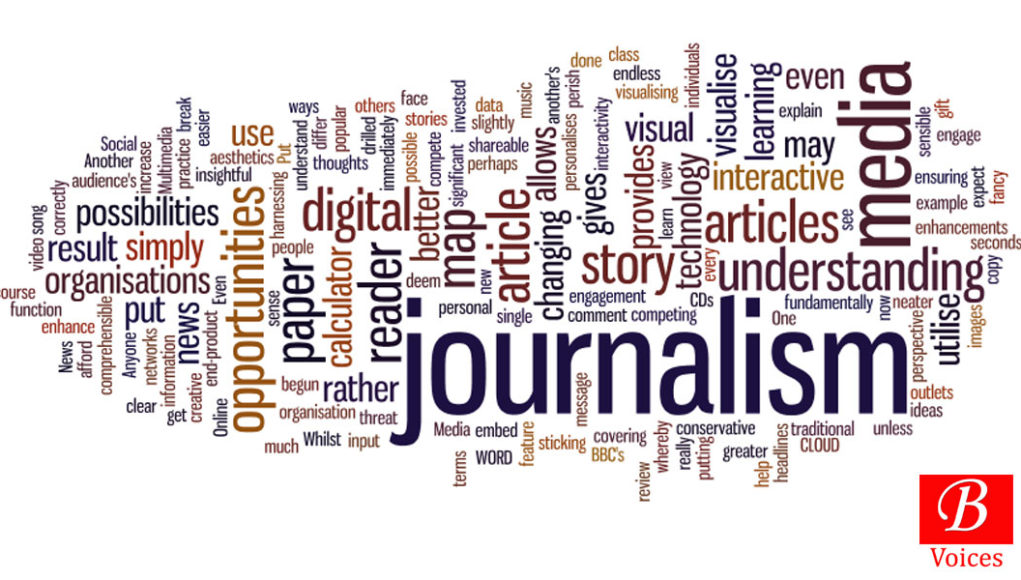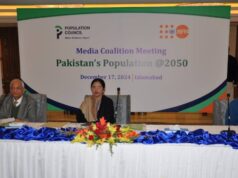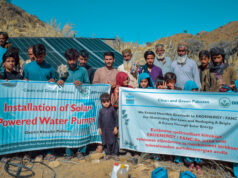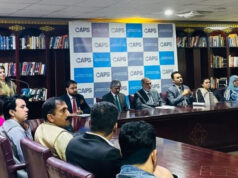Adnan Aamir
In last week’s edition of The Friday Times, this scribe wrote an article titled “Balochistan’s misplaced development priorities.” That article was a critique of the way the Balochistan government had planned its development spending for the next 12 months. In a WhatsApp group called “Balochistan Voices,” this story was shared where the Chief Minister (CM) of Balochistan Jam Kamal termed it a “poor assessment.” He went on to criticize the story by stating that “if one wears a yellow glass…I can’t make his outer vision normal, he has to take it out and see things without prejudice and internal activism.”
What CM Balochistan said in response to TFT’s story is not something new. Journalists in Balochistan, including this scribe, regularly face such criticism after we publish a story critical of government policies. Government officials often come up with the cliché that “you should also do positive journalism and highlight good things done by the government. Not everything is bad in the province.”
A quote found for the first time on the desk of L. E. Edwardson, city editor of the Chicago Herald and Examiner, best describes this situation. This famous quote, often misattributed to many other people, goes like this: “news is something someone wants suppressed. Everything else is just advertising.” This is why the main job of journalists is to write about what the government wants to suppress. If we praise them for good work they have done, then it is seen as advertising.
The provincial government is taking its cue from the federal government, especially when it comes to blaming the media
In order to highlight the positive steps and actions taken by the government, there is a separate body called Directorate General of Public Relations (DGPR). With a budget of hundreds of millions of rupees every year, DGPR strives for positive coverage of the government. DGPR spends most of its budget on placing ads in local and national newspapers which highlight the good things done by the provincial government. They also have a huge presence on social media and propagate a good image of the government there as well. Therefore, journalists believe that it is not only naïve, but also unfair on the part of the government to expect journalists to do the job of DGPR: propagating a positive image of the government.
Moreover, it is wrong to say that the media does not cover good things done by the government. These things are routinely covered through daily news on government initiatives. For instance, the media never misses an opportunity to praise the Balochistan Awami Endowment Fund, which funds the medical treatment of underprivileged citizens. This fund is unprecedented in the history of the province and hence the government has got its fair share of praise from the media for it.
Moreover, this government has been appreciated for taking action against fake domiciles in the province. Only a couple of weeks ago, this scribe wrote a detailed story on this topic for The Friday Times. Likewise, this government was supported by media for their COVID-19 response, establishing Medical Emergency Response Centers (MERC) project for national highways and standing up to the federal government for Balochistan’s interests among others.
At the same time, the government has made a lot of questionable decisions that have been criticised by the media on their merit. Examples include the decision to appoint an unqualified person to represent Balochistan at 10th NFC, or allocating Rs2.5 billion for purchasing an air ambulance when there is a shortage of regular functional ambulances. Moreover, some government officials have been accused of spending fortunes on fixing tuff tiles between the roads of Quetta and uprooting trees, allegedly for kickbacks. These few examples of bad decisions of the government were criticised because they were wrong, and not because media has a vendetta against Kamal’s government.
Unfortunately, the provincial government is taking its cue from the federal government, especially when it comes to blaming the media. The PTI government in Islamabad has been disastrous for the media in many ways. Many journalists have lost their jobs, magazines and newspapers have been shut down and recently a TV channel was on the verge of shutting down before the courts intervened. As a protest to the adversarial policy of the PTI government against media, Quetta Press Club returned a grant of Rs1 million back to the Ministry of Information and Broadcasting. Other major press clubs of Pakistan followed suit.
The government much understand the importance of accepting criticism from the media. Jam Kamal is the chief executive of the province because of democracy. The same system allows media to be independent and criticise the government. In fact, media is the fourth pillar of the state and it has to play the role of a watchdog to ensure that the government is following the law.
Furthermore, the provincial government must understand that not every piece of writing critical to them is yellow journalism, and driven through vested interests. Yellow journalism is indeed practiced in Balochistan, which is most unfortunate. There are some black sheep among journalists community who also resort to mudslinging for their vested interests. However, it is not difficult for a learned person to distinguish genuine journalism from yellow journalism. In this age of information, no government can suppress genuine criticism from the media by terming it yellow journalism. It is a card that has already expired and will not do any good for CM Balochistan.
Samuel Johnson, the 18th-century playwright, and author, once said that “A free press can be good or bad, but, most certainly, without freedom, a press will never be anything but bad.” Reporters Without Borders, a global media safety watchdog, use the tagline “No freedom without press freedom.”
In this context, the Balochistan government needs to be tolerant of a free press for the greater good of society, even if it is critical to them. The government’s approach should be to improve its governance based on press criticism and not shrug it off as yellow journalism.
Originally published in The Friday Times
Share your comments!








